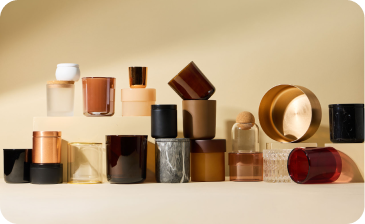Understanding IFRA and SDS
Fragrance oils are a crucial component in creating scented products like candles, soaps, and skincare items. However, ensuring the safety and compliance of these products isn't just about choosing the right scents; it involves understanding and adhering to specific regulations and safety data. Two key elements in this context are the International Fragrance Association (IFRA) standards and Safety Data Sheets (SDS). This blog will demystify these important documents and explain how they impact your product development and consumer safety.
What is IFRA?
The International Fragrance Association (IFRA) is the global representative body of the fragrance industry that sets standards for the safe use of fragrance ingredients. IFRA's guidelines help ensure that fragrance oils do not cause harm to consumers or the environment. Compliance with these standards is essential for anyone involved in making and selling scented products.
IFRA Standards:
Usage Restrictions: IFRA standards dictate the maximum amounts of certain fragrance ingredients that can be used in various product categories. For example, a fragrance oil might have different usage limits for use in a leave-on skin product compared to a candle.
Product Safety: The standards are based on scientific data and are regularly updated to reflect new research and regulatory requirements.
Consumer Confidence: Adhering to IFRA standards not only ensures safety but also builds consumer trust in your products.
What is an SDS?
A Safety Data Sheet (SDS), formerly known as a Material Safety Data Sheet (MSDS), is a document that provides information on the properties of a potentially hazardous material. For fragrance oils, an SDS is crucial for understanding the chemical composition and the necessary safety precautions.
Key Components of an SDS:
Identification: Details about the fragrance oil, including its name, manufacturer, and emergency contact information.
Hazard Identification: Includes hazard classification, signal words, hazard statements, and precautionary statements.
Composition/Information on Ingredients: Information on the chemical substances within the fragrance oil, including any hazardous ingredients.
First-Aid Measures: Instructions on what to do if a person is exposed to the fragrance oil.
Fire-Fighting Measures: Guidance on how to handle fires involving the fragrance oil.
Accidental Release Measures: Steps to take in the event of a spill or accidental release.
Handling and Storage: Recommendations for safe handling and storage of the fragrance oil.
Exposure Controls/Personal Protection: Information on ventilation requirements and types of protective equipment to use.
Why are IFRA and SDS Important for Makers?
Understanding and implementing the guidelines in IFRA standards and SDS can significantly impact the safety and marketability of your products. Here’s why they are essential:
Safety: By following IFRA standards and the safety precautions outlined in SDS, you can prevent adverse reactions in end-users, such as skin irritation or allergic responses.
Regulatory Compliance: Many countries require adherence to these standards for products to be legally sold. Non-compliance can result in legal consequences and product recalls.
Product Development: These documents provide vital information that can help in formulating products that are not only safe but also effective.
Tips for Compliance:
Stay Updated: IFRA standards and SDS can change. Regularly check for updates and revise your product formulations accordingly.
Educate Your Team: Ensure that anyone involved in your production process understands these documents and the importance of compliance.
Communicate with Suppliers: Verify that the fragrance oils you purchase come with up-to-date IFRA certificates and SDS. This ensures your supply chain remains compliant.
Conclusion
For crafters and makers, understanding IFRA standards and SDS is not just about legal compliance; it's about ensuring the highest safety standards for your products and maintaining the trust of your customers. While navigating these documents may seem daunting, they are indispensable tools in the responsible manufacturing of scented products. With the right knowledge and adherence, you can ensure your creations are safe, enjoyable, and above all, compliant with industry standards.
Happy Making!







